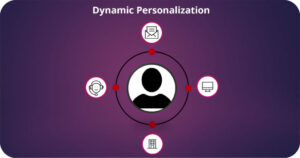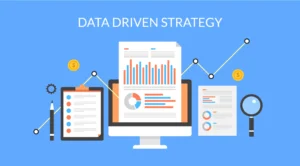In the fast-paced world of advertising, Artificial Intelligence (AI) is approaching as a transformative force, reshaping how businesses connect with their target audience and optimize marketing strategies. Here’s a closer look at role of AI in advertising :
AI analyzes vast datasets to identify and target specific audience segments based on demographics, behaviors, and preferences.

By leveraging AI algorithms, advertisers can deliver personalized content and recommendations, enhancing user engagement and conversion rates.

AI-driven programmatic advertising automates the buying process in real-time, optimizing ad placements and targeting for maximum efficiency.

AI algorithms analyze data to make split-second decisions on ad placements, ensuring optimal performance and cost-effectiveness.

AI tools analyze market trends and consumer behavior to provide insights for creating more effective and resonant ad content.
![]()
AI algorithms optimize ad creatives, headlines, and visuals based on performance data, refining campaigns for better results.

AI-powered chatbots provide instant and personalized responses to customer queries, enhancing user experience and engagement.

Chatbots integrated into advertising channels can facilitate lead generation by interacting with potential customers in a conversational manner.

AI employs predictive analytics to forecast the performance of advertising campaigns, enabling advertisers to allocate resources effectively.

By analyzing historical data, AI identifies emerging market trends and consumer preferences, allowing advertisers to stay ahead of the curve.

AI algorithms monitor ad traffic in real-time, detecting and preventing fraudulent activities such as click fraud and ad impressions from non-human sources.

AI-driven solutions add an extra layer of security, safeguarding advertising budgets from wasteful spending due to fraudulent activities.

AI technologies, including natural language processing, enable advertisers to optimize campaigns for voice search, catering to the growing number of users relying on voice-activated devices.

AI understands the context of voice queries, allowing for more nuanced and relevant responses in voice-based advertising.

AI processes vast amounts of data to provide advertisers with granular insights into campaign performance, audience behavior, and market trends.

Advertisers can make informed decisions based on AI-generated insights, refining strategies for better results.

As AI continues to evolve, its role of AI in advertising will only become more central. From automating processes to enhancing personalization, the integration of AI empowers advertisers to navigate the complexities of the digital landscape, providing more targeted and effective campaigns while optimizing resources for maximum impact. Embracing AI is not just a trend but a strategic imperative for those seeking to stay competitive in the ever-evolving world of advertising.